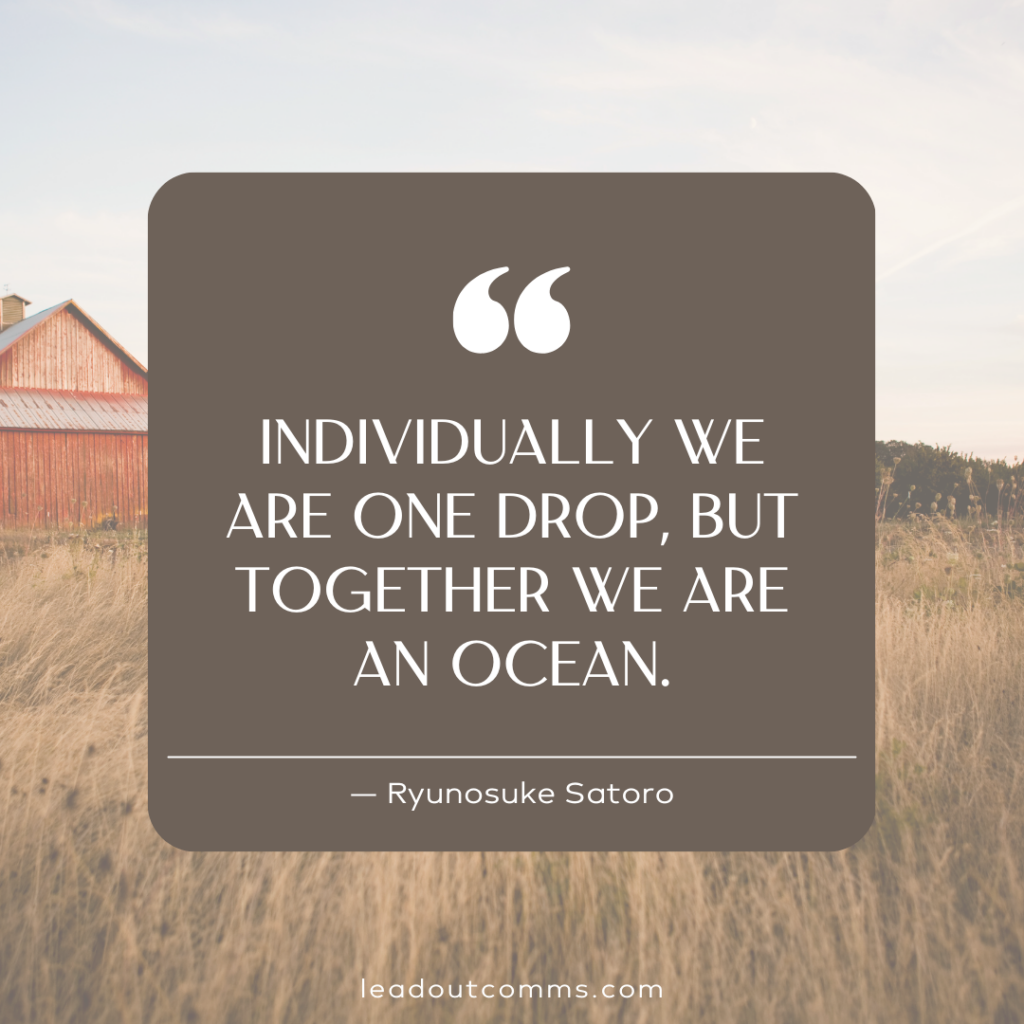
When running a business in a rural area, tapping into local networks is a must. I heavily rely on this and advise my clients to do it as much as possible.
Why?
Remember the movie, You’ve Got Mail?
Well, it’s a favorite of mine, and unlike the AOL mail service it references, the advice the movie provides will stand the test of time.
Much like in You’ve Got Mail, Kathleen Kelly’s small bookstore thrives on local connections, and—believe it or not—your small business relies upon the same kind of neighborhood network to thrive.
Developing those local connections is essential for expansion, stability, and building relationships that foster both personal and economic growth. In the same way that Joe Fox and Kathleen Kelly’s online connection blossoms into a real-life romance, these networks do more than just help businesses—they spark innovation, foster knowledge sharing, and boost market visibility.
Especially for rural entrepreneurs who are often cut off from larger economic hubs like the bustling streets of New York City in You’ve Got Mail, these networks are lifelines that provide access to critical resources, advice, and partnerships.
One example can be found in the Rural Partners Network (RPN). They are making significant strides in bridging the resource gap in underserved areas, proving how vital community networks are. Just like how Kathleen’s shop, The Shop Around The Corner, became a community hub, RPN ensures that federal support reaches those who need it most by strategically choosing counties based on economic need and readiness for engagement.
These efforts have led to significant community improvements, such as the establishment of new community centers that have grown into centers for educational and social activities, much like how Kathleen’s bookstore became a gathering place for children’s story time.
Ways to Connect
For rural business owners, networking is key to navigating challenges unique to less populated areas. It provides a platform to access resources, share knowledge, and uncover new opportunities, just like how Joe and Kathleen’s email exchanges revealed new perspectives.
To effectively find and nurture local connections, I strongly recommend rural entrepreneurs actively seek out and participate in community events and local business groups. Attending chamber of commerce meetings, local trade shows, and business fairs provide opportunities to meet other business owners and community leaders, much like the cocktail party scene in You’ve Got Mail.
Imagine a small boutique partnering with local artisans to offer unique products or a coffee shop expanding its reach through events with a nearby bookstore. Such collaborations not only enhance business prospects but also strengthen community bonds.
Engaging in these settings not only helps in gaining visibility but also allows entrepreneurs to exchange ideas and collaborate on community projects, enhancing their local presence, just like how Kathleen and Joe’s online connection eventually led to a real-life partnership.
Another powerful way to expand local connections is through volunteering. By contributing to community projects and serving on local boards, entrepreneurs can build relationships in a non-commercial setting, which can often lead to business partnerships, much like how Kathleen and Joe’s relationship evolved beyond their online personas.
These approaches not only position business owners as committed members of the community but also provide deeper insights into the local market and consumer needs, ensuring that, like The Shop Around The Corner, your business remains a beloved part of the neighborhood.
If you want to ensure you aren’t described as “You are nothing but a suit,” contact me!
